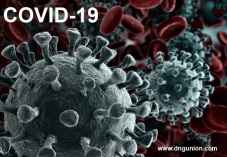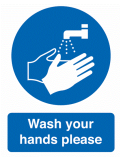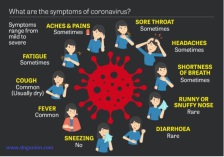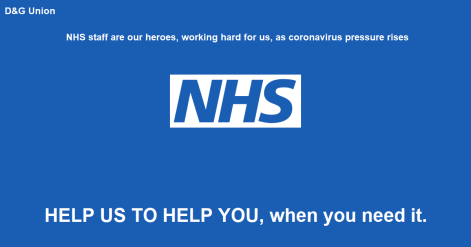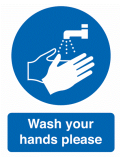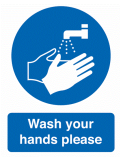COVID-19 Coronavirus
The Roadmap steps
Government publishes four-step roadmap to ease restrictions across England and provide a route back to a more normal way of life
Each step to be assessed against four tests before restrictions ease, starting with the return of schools on 8 March
Prime Minister is clear that the decision on each stage will be based on data not dates, and government will move cautiously to keep infection rates under control
Step 1:
8 March
- Schools and colleges are open for all students. Practical Higher Education Courses.
- Recreation or exercise outdoors with household or one other person. No household mixing indoors.
- Wraparound childcare.
- Stay at home.
- Funerals (30), wakes and weddings (6)
29 March
- Rule of 6 or two households outdoors. No household mixing indoors.
- Outdoor sport and leisure facilities.
- Organised outdoor sport allowed (children and adults).
- Minimise travel. No holidays.
- Outdoor parent & child groups (up to 15 parents).
Step 2
At least five weeks after Step 1, no earlier than 12 April.
- Indoor leisure (including gyms) open for use individually or within household groups.
- Rule of 6 or two households outdoors. No household mixing indoors.
- Outdoor attractions such as zoos, theme parks and drive-in cinemas.
- Libraries and community centres.
- Personal care premises.
- All retail.
- Outdoor hospitality.
- All children’s activities, indoor parent & child groups (up to 15 parents).
- Domestic overnight stays (household only).
- Self-contained accommodation (household only).
- Funerals (30), wakes, weddings and receptions (15).
- Minimise travel. No international holidays.
- Event pilots begin.
Step 3
At least five weeks after Step 2, no earlier than 17 May.
- Indoor entertainment and attractions.
- 30 person limit outdoors. Rule of 6 or two households (subject to review).
- Domestic overnight stays.
- Organised indoor adult sport.
- Most significant life events (30).
- Remaining outdoor entertainment (including performances).
- Remaining accommodation.
- Some large events (expect for pilots) - capacity limits apply.
- Indoor events: 1,000 or 50%.
- Outdoor other events: 4,000 or 50%.
- Outdoor seated events: 10,000 or 25%.
- International travel - subject to review.
Step 4
At least five weeks after Step 3, no earlier than 21 June. By Step 4, the Government hopes to be able to introduce the following (subject to review):
- No legal limits on social contact
- Nightclubs.
- Larger events.
- No legal limit on life events.
Prime Minister's lockdown message to the nation
'YOU MUST STAY AT HOME'
Residents must stay at home to protect our NHS and save lives.
The UK government has said it will pay the wages of employees unable to work due to the coronavirus pandemic, in a move aimed at protecting people's jobs.
It will pay 80% of salary for staff who are kept on by their employer, covering wages of up to £2,500 a month.
Also said police will:
- Stop all gatherings of more than two people in public – excluding people you live with
- Stop all social events, including weddings, baptisms and other ceremonies, but excluding funerals.
- Parks will remain open for exercise, but gatherings will be dispersed.
That is why people will only be allowed to leave their home for the following very limited purposes:
- Shopping for basic necessities, as infrequently as possible
- One form of exercise a day - for example a run, walk, or cycle - alone or with members of your household;
- Any medical need, to provide care or to help a vulnerable person
- Travelling to and from work, but only where this is absolutely necessary and cannot be done from home.
Advice for everyone from the NHS
Coronavirus (COVID-19)
Britain in coronavirus lockdown on some services and some industries closing to help control COVID 19.
Places to help you with coronavirus information (COVID-19)
NHS 111, check if you have any COVID-19
symptoms:
https://111.nhs.uk/covid-19
NHS, stay at home if you have COVID-19 symptoms:
https://www.nhs.uk/conditions/coronavirus-covid-19/
UK Government response, COVID-19:
https://www.gov.uk/government/topical-events/coronavirus-covid-19-uk-government-response
Age UK. Information about COVID-19:
https://www.ageuk.org.uk/information-advice/coronavirus/coronavirus/
ACAS, COVID-19 advice for employers and employees:
https://www.acas.org.uk/coronavirus
Citizens Advice, information about COVID-19:
https://www.citizensadvice.org.uk/health/coronavirus-what-it-means-for-you/
D&G Union
Coronavirus (COVID-19)
Firstly, the D&G Union would like to thank the extremely brave and truly heroic staff in our NHS who are fighting this terrible pandemic on the front line. Whilst most people are staying at home, this is not an option for most of our members because this type of caring for others cannot be done from home.
This applies to many of our other members such as bus & lorry drivers, food store workers and other essential workers who are selflessly doing their very best to keep the country going.
The devastating impact of the Coronavirus has meant that everyone is facing challenges like never before. Families suffering the premature loss of loved ones for example and the enormous anxiety of not being able to be with the ones we care for the most. The D&G Union’s number one priority remains the safety and wellbeing of all of our members and we will continue to support you through this difficult and challenging time.
We are keeping a close eye on all the latest news updates and government information and making sure our members get all the advice and recommendations from the Government, Public Health England and the World Health Organisation. For more information please visit our website www.dngunion.com
From all of the team at D&G, thank you all for your hard work and continued support.
Clean hands protect against infection
Protect yourself
- Clean your hands regularly.
- Wash your hands with soap and water and dry them thoroughly.
- Use alcohol-based hand rub if you don’t have immediate access to soap and water.
- Stay safe.
NHS England
This section contains information on deaths of patients who have died in hospitals in England and had tested positive for COVID-19 at time of death. All deaths are recorded against the date of death rather than the date the deaths were announced. Interpretation of the figures should take into account the fact that totals by date of death, particularly for recent prior days, are likely to be updated in future releases. For example, as deaths are confirmed as testing positive for Covid-19, as more post-mortem tests are processed and data from them are validated. Any changes are made clear in the daily files.
These figures will be updated at 2pm each day and include confirmed cases reported at 5pm the previous day. Confirmation of COVID-19 diagnosis, death notification and report
COVID-19-total-announced-deaths-8-April-[...]
Adobe Acrobat document [201.5 KB]
Key Workers
Health and social care
This includes but is not limited to doctors, nurses, midwives, paramedics, social workers, care workers, and other frontline health and social care staff including volunteers; the support and specialist staff required to maintain the UK’s health and social care sector; those working as part of the health and social care supply chain, including producers and distributors of medicines and medical and personal protective equipment.
Education and childcare
This includes childcare, support and teaching staff, social workers and those specialist education professionals who must remain active during the COVID-19 response to deliver this approach.
Key public services
This includes those essential to the running of the justice system, religious staff, charities and workers delivering key frontline services, those responsible for the management of the deceased, and journalists and broadcasters who are providing public service broadcasting.
Local and national government
This only includes those administrative occupations essential to the effective delivery of the COVID-19 response, or delivering essential public services, such as the payment of benefits, including in government agencies.
Food and other necessary goods
This includes those involved in food production, processing, distribution, sale and delivery, as well as those essential to the provision of other key goods (for example hygienic and veterinary medicines).
Public safety and national security
This includes police and support staff, Ministry of Defence civilians, contractor and armed forces personnel (those critical to the delivery of key defence and national security outputs and essential to the response to the COVID-19 pandemic), fire and rescue service employees (including support staff), National Crime Agency staff, those maintaining border security, prison and probation staff and other national security roles, including those overseas.
Transport
This includes those who will keep the air, water, road and rail passenger and freight transport modes operating during the COVID-19 response, including those working on transport systems through which supply chains pass.
Big THANK YOU to all key workers that are on the front line to help others in need, plus thank you to the people staying at home to help stop the spread of COVID-19.
Prime Minister Boris Johnson has been moved to intensive care in hospital after his coronavirus symptoms.
Downing Street spokesman said he was moved on the advice of his medical team and was receiving excellent care, the Prime Minister, 55, was admitted to hospital in London.
A No 10 statement read: "The prime minister has been under the care of doctors at St Thomas' Hospital, in London, after being admitted with persistent symptoms of coronavirus. The Queen has been kept informed about Mr Johnson's health by No 10, according to Buckingham Palace. Mr Johnson has asked Foreign Secretary Dominic Raab to deputise where necessary.
Over the course of Monday afternoon, the condition of the prime minister had worsened, it’s been said the prime minister was given oxygen late Monday afternoon, and on the advice of his medical team, he has now been moved to the intensive care unit at the hospital, however he has not been put on a ventilator.
We all wish him a speedy recovery.
Number of cases and deaths
As of 9am on 2 April 2020, 163,194 people have been tested, of which 33,718 were confirmed positive.
As of 5pm on 1 April 2020, of those hospitalised in the UK who tested positive for coronavirus, 2,921 have died.
Data on UK positive and negative tests and data on deaths is updated on this page daily at 2pm or shortly after. The figures for test results and for deaths are compiled from different sources. This is why the figures for deaths are reported from an earlier point in time than the figures for test results.
Notes on deaths figures
The figures on deaths relate in almost all cases to patients who have died in hospital and who have tested positive for COVID-19. Slight differences in reporting in devolved administrations may mean that they include a small number of deaths outside hospital. The figures are compiled from validated data provided by NHS England and Improvement, Health Protection Scotland, Public Health Wales and the Public Health Agency (Northern Ireland).
These figures do not include deaths outside hospital, such as those in care homes, except as indicated above. This approach allows us to compile deaths data on a daily basis using up-to-date figures. The data includes confirmed cases reported as at 5pm the previous day. The amount of time between occurrence of death and reporting in these figures may vary slightly and, in some cases, could be a few days, so figures at 5pm may not include all deaths for that day.
In addition to these figures, the Office for National Statistics (ONS) publishes weekly counts of deaths in which COVID-19 was mentioned on the death certificate. This publication is issued every Tuesday, starting on 31 March. It includes cases outside hospital and also some cases where COVID-19 is suspected but no test has taken place. ONS data will initially cover England and Wales only and will report on deaths registered up to 11 days before publication, so up to 20 March for their first release.
Material published by Public Health England
Public Health England update a daily dashboard later the same day, to show trends in UK data on positive tests and deaths and to provide confirmed cases in each local authority and NHS region in England.
Risk level
The risk to the UK has been raised to high.
Coronavirus outbreak
The UK’s response to the coronavirus outbreak has placed significant restrictions on our lives, we have seen the following legislative changes:
The Coronavirus Act 2020 received Royal Assent on 25 March 2020. From an employment law perspective, the key measures are as follows:
Statutory sick pay (SSP):
SSP will be payable from the first day of absence for an employee whose incapacity for work is related to coronavirus. This applies to any period of incapacity for work related to the coronavirus on or after 13 March 2020.
HMRC has been given the power to refund an employer’s payment of SSP in the above circumstances. HMRC will draft Regulations setting out the detail of this in due course.
The Chancellor announced on 17 March 2020 that funding would be available for employers who have less than 250 to recover two weeks’ SSP per each eligible employee.
Emergency volunteering leave:
Emergency volunteering leave is a new concept allowing workers to leave their primary job and temporarily volunteer in the health or care sector. The following is of note for employers:
Workers are entitled to be absent from work on leave for the period specified in an emergency volunteering certificate (EVC), issued by an appropriate authority.
To qualify for this leave, no later than three working days before the first day of the leave period, the worker must notify their employer in writing of their intention to be absent from work and provide their employer with a copy of the EVC.
Workers can take only one period of leave in each volunteering period. The period of leave set out in the EVC must be either two, three or four consecutive weeks and must begin and end in the same “volunteering period” (i.e. an initial 16 week period, beginning on the date that the relevant section and schedule of the 2020 Act come into force, but further periods can be set thereafter).
Employers are not entitled to refuse a request for this leave, unless they have less than ten employees.
Employers are not required to pay workers their normal wages or salary during this period of leave.
That said, workers absent on this leave have the following rights: to benefit from their terms and conditions that would have applied had they not been absent (except in relation to pay), to return to the job that they did before the leave on no less favourable terms and conditions and to protection from detriment and dismissal for having taken the leave.
Carry forward of annual leave
On 27 March 2020, the Government has confirmed that existing regulations will be amended so that workers can carry forward up to four weeks of annual leave to the next two holiday years, where they have been prevented from taking the leave due to coronavirus.
Clean hands protect against infection
Protect yourself
- Clean your hands regularly.
- Wash your hands with soap and water and dry them thoroughly.
- Use alcohol-based hand rub if you don’t have immediate access to soap and water.
- Stay safe.
Prime Minister Boris Johnson has used a national TV address to set out strict new measures aimed at protecting people from the coronavirus outbreak. This is his statement in full:
"Good evening,
The coronavirus is the biggest threat this country has faced for decades - and this country is not alone.
All over the world we are seeing the devastating impact of this invisible killer
And so tonight I want to update you on the latest steps we are taking to fight the disease and what you can do to help, and I want to begin by reminding you why the UK has been taking the approach that we have.
Without a huge national effort to halt the growth of this virus, there will come a moment when no health service in the world could possibly cope; because there won't be enough ventilators, enough intensive care beds, enough doctors and nurses, and as we have seen elsewhere, in other countries that also have fantastic health care systems, that is the moment of real danger.
To put it simply, if too many people become seriously unwell at one time, the NHS will be unable to handle it - meaning more people are likely to die, not just from coronavirus but from other illnesses as well.
So, it's vital to slow the spread of the disease. Because that is the way we reduce the number of people needing hospital treatment at any one time, so we can protect the NHS's ability to cope - and save more lives, and that's why we have been asking people to stay at home during this pandemic. Though huge numbers are complying - and I thank you all - the time has now come for us all to do more.
From this evening I must give the British people a very simple instruction - you must stay at home.
Because the critical thing we must do is stop the disease spreading between households.
That is why people will only be allowed to leave their home for the following very limited purposes:
- Shopping for basic necessities, as infrequently as possible
- One form of exercise a day - for example a run, walk, or cycle - alone or with members of your household;
- Any medical need, to provide care or to help a vulnerable person; and
- Travelling to and from work, but only where this is absolutely necessary and cannot be done from home.
- That's all - these are the only reasons you should leave your home.
- You should not be meeting friends. If your friends ask you to meet, you should say no.
- You should not be meeting family members who do not live in your home.
- You should not be going shopping except for essentials like food and medicine - and you should do this as little as you can. And use food delivery services where you can.
If you don't follow the rules the police will have the powers to enforce them, including through fines and dispersing gatherings.
To ensure compliance with the government's instruction to stay at home, we will immediately:
Close all shops selling non-essential goods, including clothing and electronic stores and other premises including libraries, playgrounds and outdoor gyms, and places of worship. We will stop all gatherings of more than two people in public - excluding people you live with and we'll stop all social events, including weddings, baptisms and other ceremonies, but excluding funerals
Parks will remain open for exercise, but gatherings will be dispersed.
No prime minister wants to enact measures like this.
I know the damage that this disruption is doing and will do to people's lives, to their businesses and to their jobs.
And that's why we have produced a huge and unprecedented programme of support both for workers and for business, and I can assure you that we will keep these restrictions under constant review. We will look again in three weeks and relax them if the evidence shows we are able to.
But at present there are just no easy options. The way ahead is hard, and it is still true that many lives will sadly be lost and yet it is also true that there is a clear way through.
Day by day we are strengthening our amazing NHS with 7,500 former clinicians now coming back to the service.
With the time you buy - by simply staying at home - we are increasing our stocks of equipment.
We are accelerating our search for treatments. We are pioneering work on a vaccine.
'Halt the disease'
And we are buying millions of testing kits that will enable us to turn the tide on this invisible killer.
I want to thank everyone who is working flat out to beat the virus. Everyone from the supermarket staff to the transport workers to the carers to the nurses and doctors on the frontline.
But in this fight, we can be in no doubt that each and every one of us is directly enlisted. Each and every one of us is now obliged to join together.
To halt the spread of this disease. To protect our NHS and to save many thousands of lives, and I know that as they have in the past so many times, the people of this country will rise to that challenge and we will come through it stronger than ever.
We will beat the coronavirus and we will beat it together and therefore I urge you at this moment of national emergency to stay at home, protect our NHS and save lives.
Thank you."
Order of Prime Minister Boris Johnson
All non-essential shops to close immediately
23rd March 2020
Non-essential shops will be closed immediately as the government imposes tougher controls to try and fight the coronavirus.
Monday night's announcement came as the number of UK deaths from coronavirus hit 335, while there were 6,650 confirmed cases.
The shutdown will include clothing and electronic stores, other premises including libraries, playgrounds and outdoor gyms also places of worship. However, shops which sell essential items, such as supermarkets and pharmacies, will remain open.
Prime Minister Boris Johnson said the measures would cause disruption but save lives.
The damage that this disruption is doing and will do to people's lives, to their businesses and to their jobs.
"And that's why we have produced a huge and unprecedented programme of support both for workers and for business."
Examples of Retailers that will be allowed to stay open include:
- Supermarkets and other food shops
- Pharmacies
- Petrol stations
- Newsagents
- Laundrettes and dry cleaners
- Pet shops
- Post Offices
- Banks
Retailers will still be able to take online orders and deliver items to your home.
"Any retailers that remain open will be following the very latest government public health guidance to ensure they do everything they can to ensure the safety of customers and staff."
Guidance for schools, childcare providers, colleges and local authorities in England on maintaining educational provision
As a country, we all need to do what we can to reduce the spread of the COVID-19 virus.
That is why the government has given clear guidanceon self-isolation, household isolation and social distancing, and the most recent scientific advice on how to further limit the spread of COVID-19 is clear. If children can stay safely at home, they should, to limit the chance of the virus spreading.
That is why the government has asked parents to keep their children at home, wherever possible, and asked schools to remain open only for those children who absolutely need to attend.
It is important to underline that schools, all childcare settings (including early years settings, childminders and providers of childcare for school-age children), colleges and other educational establishments, remain safe places for children. But the fewer children making the journey to school, and the fewer children in educational settings, the lower the risk that the virus can spread and infect vulnerable individuals in wider society.
Schools, and all childcare providers, are therefore being asked to continue to provide care for a limited number of children - children who are vulnerable, and children whose parents are critical to the Covid-19 response and cannot be safely cared for at home.
Vulnerable children include children who are supported by social care, those with safeguarding and welfare needs, including child in need plans, on child protection plans, ‘looked after’ children, young carers, disabled children and those with education, health and care plans.
We know that schools will also want to support other children facing social difficulties, and we will support head teachers to do so.
Parents whose work is critical to the COVID-19 response include those who work in health and social care and in other key sectors outlined below. Many parents working in these sectors may be able to ensure their child is kept at home. And every child who can be safely cared for at home should be.
Please, therefore, follow these key principles:
If it is at all possible for children to be at home, then they should be.
If a child needs specialist support, is vulnerable or has a parent who is a critical worker, then educational provision will be available for them.
Parents should not rely for childcare upon those who are advised to be in the stringent social distancing category such as grandparents, friends, or family members with underlying conditions.
Parents should also do everything they can to ensure children are not mixing socially in a way which can continue to spread the virus. They should observe the same social distancing principles as adults.
Residential special schools, boarding schools and special settings continue to care for children wherever possible.
If your work is critical to the COVID-19 response, or you work in one of the critical sectors listed below, and you cannot keep your child safe at home then your children will be prioritised for education provision:
Health and social care
This includes but is not limited to doctors, nurses, midwives, paramedics, social workers, care workers, and other frontline health and social care staff including volunteers; the support and specialist staff required to maintain the UK’s health and social care sector; those working as part of the health and social care supply chain, including producers and distributers of medicines and medical and personal protective equipment.
Education and childcare
This includes childcare, support and teaching staff, social workers and those specialist education professionals who must remain active during the COVID-19 response to deliver this approach.
Key public services
This includes those essential to the running of the justice system, religious staff, charities and workers delivering key frontline services, those responsible for the management of the deceased, and journalists and broadcasters who are providing public service broadcasting.
Local and national government
This only includes those administrative occupations essential to the effective delivery of the COVID-19 response, or delivering essential public services, such as the payment of benefits, including in government agencies and arm’s length bodies.
Food and other necessary goods
This includes those involved in food production, processing, distribution, sale and delivery, as well as those essential to the provision of other key goods (for example hygienic and veterinary medicines).
Public safety and national security
This includes police and support staff, Ministry of Defence civilians, contractor and armed forces personnel (those critical to the delivery of key defence and national security outputs and essential to the response to the COVID-19 pandemic), fire and rescue service employees (including support staff), National Crime Agency staff, those maintaining border security, prison and probation staff and other national security roles, including those overseas.
Transport
This includes those who will keep the air, water, road and rail passenger and freight transport modes operating during the COVID-19 response, including those working on transport systems through which supply chains pass.
Utilities, communication and financial services
This includes staff needed for essential financial services provision (including but not limited to workers in banks, building societies and financial market infrastructure), the oil, gas, electricity and water sectors (including sewerage), information technology and data infrastructure sector and primary industry supplies to continue during the COVID-19 response, as well as key staff working in the civil nuclear, chemicals, telecommunications (including but not limited to network operations, field engineering, call centre staff, IT and data infrastructure, 999 and 111 critical services), postal services and delivery, payments providers and waste disposal sectors.
If workers think they fall within the critical categories above, they should confirm with their employer that, based on their business continuity arrangements, their specific role is necessary for the continuation of this essential public service.
If your school is closed, then please contact your local authority, who will seek to redirect you to a local school in your area that your child, or children, can attend.
We are grateful for the work of teachers and workers in educational settings for continuing to provide for the children of the other critical workers of our country. It is an essential part of our national effort to combat this disease.
Prime Minister Boris Johnson made a statement 16th March 2020 on COVID-19
Good afternoon everybody, thank you very much for coming. I wanted to bring everyone up to date with the national fight back against the new coronavirus and the decisions that we’ve just taken in COBR for the whole of the UK.
As we said last week, our objective is to delay and flatten the peak of the epidemic by bringing forward the right measures at the right time, so that we minimise suffering and save lives. And everything we do is based scrupulously on the best scientific advice.
Last week we asked everyone to stay at home if you had one of two key symptoms: a high temperature or a new and continuous cough.
Today, we need to go further, because according to SAGE [the Scientific Advisory Group for Emergencies] it looks as though we’re now approaching the fast growth part of the upward curve, and without drastic action, cases could double every 5 or 6 days.
So, first, we need to ask you to ensure that if you or anyone in your household has one of those two symptoms, then you should stay at home for fourteen days.
That means that if possible, you should not go out even to buy food or essentials, other than for exercise, and in that case at a safe distance from others. If necessary, you should ask for help from others for your daily necessities. And if that is not possible, then you should do what you can to limit your social contact when you leave the house to get supplies, and even if you don’t have symptoms and if no one in your household has symptoms, there is more that we need you to do now.
So, second, now is the time for everyone to stop non-essential contact with others and to stop all unnecessary travel.
We need people to start working from home where they possibly can. And you should avoid pubs, clubs, theatres and other such social venues.
It goes without saying, we should all only use the NHS when we really need to. And please go online rather than ringing NHS 111.
Now, this advice about avoiding all unnecessary social contact, is particularly important for people over 70, for pregnant women and for those with some health conditions, and if you ask, why are we doing this now, why now, why not earlier, or later? Why bring in this very draconian measure?
The answer is that we are asking people to do something that is difficult and disruptive of their lives, and the right moment, as we’ve always said, is to do it when it is most effective, when we think it can make the biggest difference to slowing the spread of the disease, reducing the number of victims, reducing the number of fatalities, and as we take these steps we should be focusing on the most vulnerable.
So third, in a few days’ time – by this coming weekend – it will be necessary to go further and to ensure that those with the most serious health conditions are largely shielded from social contact for around 12 weeks, and again the reason for doing this in the next few days, rather than earlier or later, is that this is going to be very disruptive for people who have such conditions, and difficult for them, but, I believe, it’s now necessary. and we want to ensure that this period of shielding, this period of maximum protection coincides with the peak of the disease. It’s now clear that the peak of the epidemic is coming faster in some parts of the country than in others, and it looks as though London is now a few weeks ahead.
So, to relieve the pressure on the London health system and to slow the spread in London, it’s important that Londoners now pay special attention to what we are saying about avoiding non-essential contact, and to take particularly seriously the advice about working from home, and avoiding confined spaces such as pubs and restaurants.
Lastly, it remains true as we have said in the last few weeks that risks of transmission of the disease at mass gatherings such as sporting events are relatively low.
But obviously, logically as we advise against unnecessary social contact of all kinds, it is right that we should extend this advice to mass gatherings as well, and so we’ve also got to ensure that we have the critical workers we need, that might otherwise be deployed at those gatherings, to deal with this emergency.
So from tomorrow, we will no longer be supporting mass gatherings with emergency workers in the way that we normally do. So mass gatherings, we are now moving emphatically away from, and I know that many people – including millions of fit and active people over 70 – may feel, listening to what I have just said, that there is something excessive about these measures.
But I have to say, I believe that they are overwhelmingly worth it to slow the spread of the disease, to reduce the peak, to save life, minimise suffering and to give our NHS the chance to cope.
Over the last few days, I have been comparing notes and talking to leaders around the world and I can tell you that the UK is now leading a growing global campaign amongst all our friends and allies, whether in the G7, the G20, the UN, the IMF – all those bodies in which we play a significant role.
We’re leading a campaign to fight back against this disease.
To keep the economy growing, to make sure that humanity has access to the drugs and the treatments that we all need, and the UK is also at the front of the effort to back business, to back our economy, to make sure that we get through it.
I know that today we are asking a lot of everybody. It is far more now than just washing your hands - though clearly washing your hands remains important.
But I can tell you that across this country, people and businesses in my experience are responding with amazing energy and creativity to the challenge that we face, and I want to thank everybody for the part that you are playing and are going to play.
